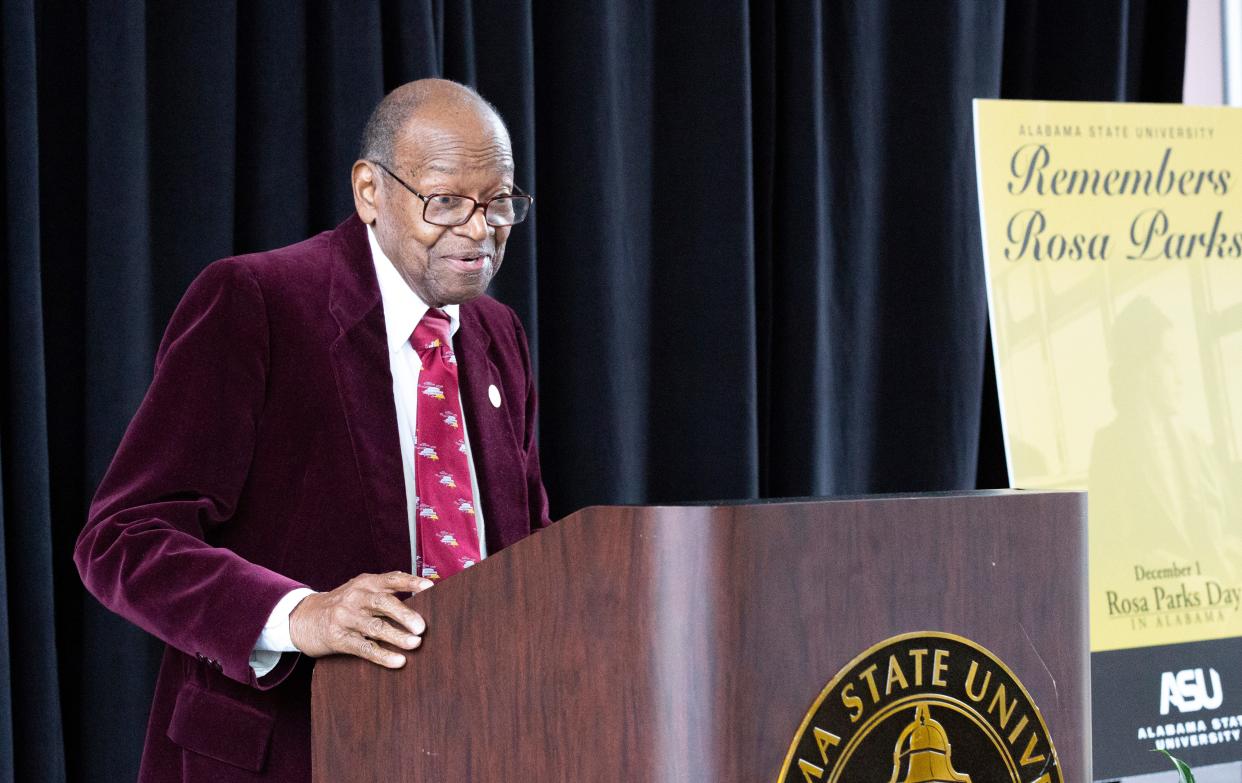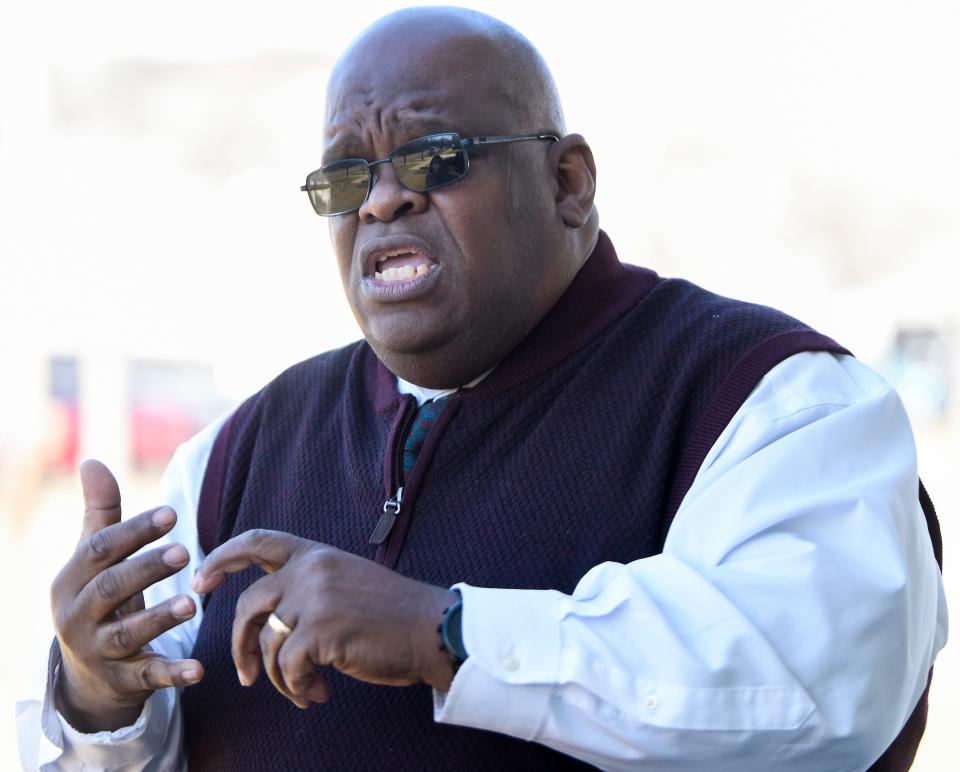Witness to history: Friends, colleagues remember Dr. Ralph Bryson of Alabama State University

- Oops!Something went wrong.Please try again later.
- Oops!Something went wrong.Please try again later.
Alabama State University English professor and civil rights pioneer Dr. Ralph Bryson, who participated in the Montgomery Bus Boycott, was remembered as a mentor, musician and a scholar by his friends and colleagues.
Bryson died Feb. 12 at age 99.
Dr. Howard Robinson, an ASU historian and archivist, said Bryson was teaching at ASU at the same time as Jo Ann Robinson. Jo Ann Robinson was a member of the Women’s Political Council and helped organize the Montgomery Bus Boycott.
“So, Ralph Bryson, it was through his longevity that allowed him to see and witness and participate in so much of what we consider, you know, history,” said Robinson.
When Robinson was an archivist at ASU and worked with the National Center for the Study of Civil Rights and African American Culture, he said he often went to Bryson for an “authentic voice.” Because Bryson had been present for so many events at ASU and, consequently, many key moments in civil rights history, he was able to share first-hand accounts of his experiences to students.
Robinson remembers Bryson once shared a story about the time Bryson dined with Martin Luther King, Jr. King had just finished his trial sermon at Dexter Avenue Baptist Church in Montgomery. King went on to serve as the church's pastor from 1954 to 1960.

Bryson was also involved in the civil rights movement through his role in the Kappa Alpha Psi fraternity. His fraternity connections included Rev. Ralph Abernathy, a civil rights activist and associate of Martin Luther King Jr.
Dr. John Ivery, a retired ASUand former student of Bryson, remembered student mentoring, as well as his passion for music.
Ivery, who later joined the Kappa Alpha Psi fraternity, praised Bryson for the help he gave students, including himself. One of Ivery's fond memories was when he was trying to gain entrance to the fraternity. One of the requirements was an in-depth knowledge of the organization's history. "He helped us to understand and learn how to perform in those categories," said Ivery.

Dr. Dorothy Autrey, retired chair of the Alabama State University history department, said Bryson had a special relationship with many at the school. "He blended in with them and was their confidant," she said.

Dr. Quinton Ross, Jr., president of Alabama State University and another former student, explained that Bryson, who was also chair of the Lyceum Committee, was influential in bringing prominent individuals to speak at the university, including internationally known poet Nikki Giovanni.

Ross said Bryson influenced his decision to go into English education. He praised Bryson as “an advocate for the students and the promoter of self-worth and excellence.”
Bryson contributed to the lives of people who went to Alabama State University and will be missed, said Ross. He said he cannot remember a time when Bryson was not wearing a bow tie — his signature — and teaching a class.
“When you talk about a gentleman and a scholar, that’s who Dr. Bryson was,” said Ross.
Jemma Stephenson is the children and education reporter for the Montgomery Advertiser. She can be reached at jstephenson@gannett.com or 334-261-1569.
This article originally appeared on Montgomery Advertiser: Ralph Bryson, ASU professor and participant in bus boycott, has died

